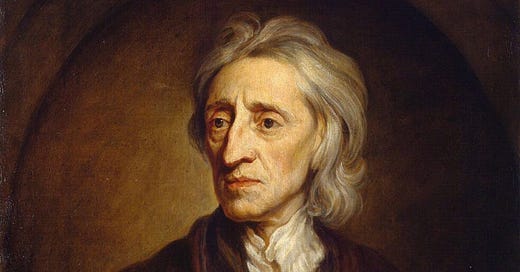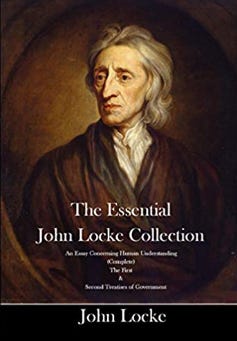What John Locke Can Teach Americans about True Tolerance
Locke said Christian tolerance (“charity, meekness, and good-will in general”) should be extended to all people.
John Locke (1632-1704) was one of the most influential thinkers of the Enlightenment. The English philosopher’s ideas are at the core of the American Founding; in fact, it can be argued that his thoughts shaped the minds of the American Revolution more than any single thinker.
While Locke is best known for his treatises on government, he also wrote on religion.
Locke was a Christian who grew up during the Thirty Years’ War (1618-1648), one of the most destructive conflicts in Europe’s bloody history. The war was largely a religious conflict, the product of the Protestation Reformation that divided European states into more than a thousand Protestant and Catholic states.
The conflict no doubt shaped Locke’s views and Christian philosophy.
A deeply religious man, Locke made the case for religious tolerance in a famous letter he wrote in 1689 titled “A Letter Concerning Toleration.”
“Since you are pleased to inquire what are my thoughts about the mutual toleration of Christians in their different professions of religion, I must needs answer you freely that I esteem that toleration to be the chief characteristic mark of the true Church.”
Locke said Christian tolerance (“charity, meekness, and good-will in general”) should be extended to all people, not just fellow Christians, and those who fail in this regard fall “short of being a true Christian himself.”
By what authority does he draw on to make this claim? The New Testament.
“If the Gospel and the apostles may be credited, no man can be a Christian without charity and without that faith which works, not by force, but by love.”
Locke closed his essay by stating that Christians seeking to advance the Christian Church through “arms that do not belong to the Christian warfare.”
“If, like the Captain of our salvation, [Christians] sincerely desired the good of souls, they would tread in the steps and follow the perfect example of that Prince of Peace, who sent out His soldiers to the subduing of nations, and gathering them into His Church, not armed with the sword, or other instruments of force, but prepared with the Gospel of peace and with the exemplary holiness of their conversation. This was His method.”
Western nations created on Enlightenment ideas and values have achieved a certain tolerance. Presbyterians are not burning Catholics at the stake; Episcopalians are not stoning Jews. But this is a fairly low bar, no?
It bears asking, how many people—Christians, liberals, conservatives, Jews, vegans, pagans, pantheists, wokesters etc.—treat one another with “charity, meekness, and good-will in general”? Americans and westerners in general tend to think of ourselves as tolerant, but evidence is mounting that we’re less tolerant than we believe we are or once were.
No one, of course, least of all Locke, would suggest one must agree with or even respect ideas with which we disagree. We must merely tolerate them and extend “charity, meekness, and good-will in general” to those who espouse them.
How often do people truly extend “charity, meekness, and good-will in general” to everyone? I know I don’t; nor do I see many people doing so.
Does this perhaps make Locke’s essay all the more timely?
A version of this article was originally published on Intellectual Takeout.






This is great. I appreciated that it makes the point that tolerance is the basis for civil society, but that tolerance does NOT mean you have to agree or even respect the views of others. Its more about behavior. I am increasingly concerned that authoritarian activists in the Establishment in North America are increasingly pushing more than tolerance, but to normalize ideas which with many citizens do not agree, and then move further to 'celebrate' them. NO. You simply need to tolerate people with other ideas, you do NOT need to agree with them, and certainly NOT celebrate their ideas.
Thank you, Jon for this post. Hopefully many will see this and begin to think about this and begin extending charity, meekness, and goodwill.